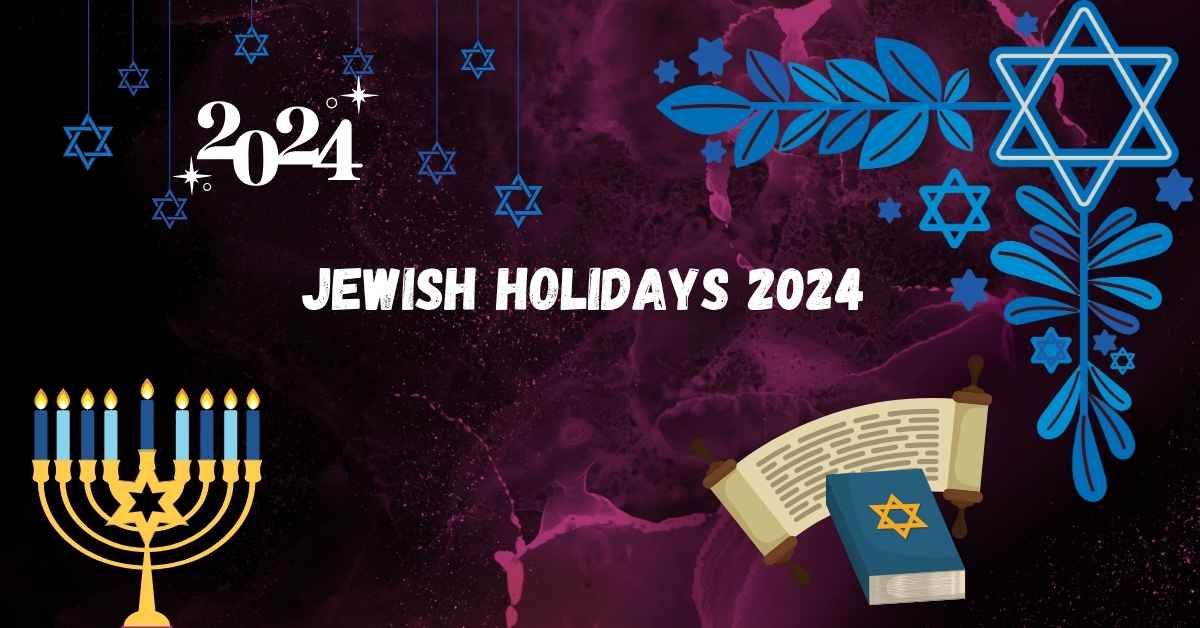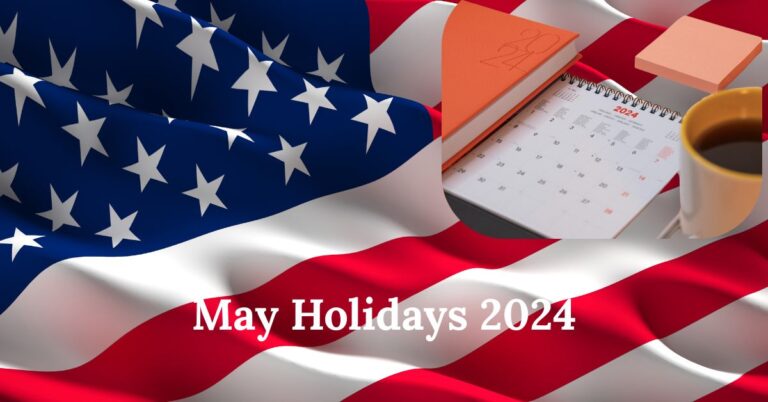Jewish Holidays 2024: Complete Guide to Dates, History, and Traditions
Jewish holidays in 2024 offer a meaningful opportunity to explore rich cultural traditions, religious practices, and historical moments that continue to shape Jewish communities around the world, including the United States. Each holiday on the Jewish calendar carries its own deep significance—some are joyful celebrations filled with music, dancing, and festive meals, while others are solemn occasions of reflection, remembrance, and prayer.
Whether you are part of the Jewish faith, have Jewish friends and colleagues, or are simply interested in learning more, this detailed guide to Jewish holidays 2024 will help you understand their history, how they are celebrated, and why they matter.
Understanding Jewish Holidays
Jewish holidays are based on the Hebrew calendar, which is a lunar-solar calendar, meaning that the dates of these holidays shift each year in relation to the Gregorian (secular) calendar. Despite these shifts, the traditions and meanings behind these holidays remain consistent and continue to hold deep religious, cultural, and historical significance.
Jewish holidays generally fall into three categories:
- Biblical Holidays: Such as Passover, Shavuot, Sukkot, Rosh Hashanah, and Yom Kippur.
- Rabbinic Holidays: Such as Hanukkah and Purim, established by religious leaders after Biblical times.
- Modern Israeli Holidays: Such as Yom HaZikaron and Yom HaAtzmaut.
Some holidays, like Yom Kippur, are observed with deep introspection and fasting, while others, like Hanukkah and Purim, are celebrated with joy, community gatherings, and special foods.
Jewish Holidays 2024: Detailed Calendar and Celebrations
Below is a list of the major Jewish holidays in 2024, along with their history, traditions, and how they are typically celebrated, especially within the Jewish communities in the United States.
-
Purim – March 24, 2024
Significance: Purim is a festive holiday that commemorates the salvation of the Jewish people from Haman’s plot to destroy them, as told in the Book of Esther.
Traditions:
- Reading the Megillah (Book of Esther) in synagogues.
- Dressing up in costumes and attending parties or carnivals.
- Sending food gifts (mishloach manot) to friends and family.
In the USA, Jewish schools and synagogues often host Purim carnivals, and children especially enjoy participating in costume parades.
-
Passover (Pesach) – April 23 to April 30, 2024
Significance: Passover marks the Exodus of the Jewish people from slavery in Egypt.
Traditions:
- Holding a Seder dinner on the first two nights, where families retell the story of the Exodus using a special text called the Haggadah.
- Eating matzah (unleavened bread) and avoiding leavened products.
- Including symbolic foods on the Seder plate, each with a specific meaning.
In the USA, Passover is widely observed among Jewish families. Grocery stores often create special Passover sections, and schools with large Jewish populations sometimes schedule spring breaks around this holiday.
-
Yom HaShoah (Holocaust Remembrance Day) – May 6, 2024
Significance: Yom HaShoah honors the memory of the six million Jews who perished in the Holocaust.
Traditions:
- Community memorial services.
- Lighting candles in memory of victims.
- Educational programs in schools and synagogues.
In Israel, sirens sound across the country, and people stand in silence to honor the victims. In the USA, museums and Jewish centers often hold public commemorations.
-
Yom HaZikaron (Israeli Memorial Day) – May 13, 2024
Significance: This is a solemn day dedicated to remembering Israeli soldiers who lost their lives in battle and victims of terrorism.
Traditions:
- National ceremonies.
- Moments of silence and reflection.
- Visiting cemeteries.
-
Yom HaAtzmaut (Israeli Independence Day) – May 14, 2024
Significance: Celebrates the establishment of the State of Israel in 1948.
Traditions:
- Fireworks displays.
- Outdoor picnics and barbecues.
- Parades and cultural events.
In Jewish communities across the USA, synagogues and community centers host celebratory events with Israeli music, food, and dancing.
-
Shavuot – June 12 to June 13, 2024
Significance: Shavuot marks the giving of the Torah to the Jewish people at Mount Sinai.
Traditions:
- All-night Torah study sessions.
- Reading the Book of Ruth.
- Eating dairy foods like cheesecake and blintzes.
This holiday is often celebrated in Jewish schools and synagogues with special learning events and community meals.
-
Rosh Hashanah (Jewish New Year) – October 2 to October 4, 2024
Significance: Rosh Hashanah is the Jewish New Year, a time for personal reflection and spiritual renewal.
Traditions:
- Blowing the shofar (a ram’s horn) in synagogue services.
- Eating symbolic foods such as apples dipped in honey for a sweet new year.
- Attending family gatherings and festive meals.
In the United States, many workplaces and schools grant excused absences for Jewish employees and students observing this holiday.
-
Yom Kippur (Day of Atonement) – October 11, 2024
Significance: Considered the holiest day of the Jewish year, Yom Kippur focuses on atonement, forgiveness, and spiritual cleansing.
Traditions:
- Fasting for 25 hours.
- Spending much of the day in prayer and synagogue services.
- Asking for forgiveness from God and from others.
Yom Kippur is widely respected, even by less observant Jews, as a day of deep personal reflection.
-
Sukkot – October 16 to October 23, 2024
Significance: Sukkot commemorates the 40 years the Israelites spent wandering in the desert after their escape from Egypt.
Traditions:
- Building a sukkah (a temporary outdoor hut) and eating meals inside it.
- Waving the lulav and etrog (four plant species) as part of daily prayers.
In many U.S. neighborhoods with Jewish populations, you can see sukkahs in backyards, on balconies, and outside synagogues during this time.
-
Simchat Torah – October 24, 2024
Significance: Celebrates the completion and immediate restarting of the annual Torah reading cycle.
Traditions:
- Dancing and singing while parading Torah scrolls around the synagogue.
- Joyous celebrations with family and community.
Simchat Torah is one of the most festive days in Jewish life, marked by uninhibited joy and celebration.
-
Hanukkah (Festival of Lights) – December 25, 2024 to January 2, 2025
Significance: Hanukkah commemorates the rededication of the Holy Temple in Jerusalem and the miracle of the oil that lasted eight days.
Traditions:
- Lighting the menorah each night for eight nights.
- Playing dreidel games and eating foods fried in oil, such as latkes and sufganiyot https://www.myjewishlearning.com/
- (jelly donuts).
- Exchanging gifts.
In the USA, Hanukkah is widely celebrated and often aligns with the winter holiday season, making it a visible and culturally recognized event.
Jewish Holidays in the USA: Cultural Significance
Jewish holidays in the United States play a crucial role in maintaining Jewish identity and strengthening community ties. Major cities like New York, Los Angeles, Miami, and Chicago have vibrant Jewish communities that publicly observe these holidays through parades, community gatherings, and cultural festivals.
These celebrations also offer opportunities for interfaith learning and cultural exchange. Schools and workplaces often accommodate Jewish holidays by granting absences or hosting educational events to promote awareness and inclusivity.
Common Jewish Holiday Greetings
Here are a few respectful greetings you can use during Jewish holidays:
- Shanah Tovah: Happy New Year (Rosh Hashanah)
- G’mar Chatimah Tovah: May you be sealed for a good year (Yom Kippur)
- Chag Sameach: Happy Holiday (general)
- Happy Hanukkah: A common Hanukkah greeting
Using these greetings shows cultural sensitivity and can help foster positive relationships with Jewish friends, colleagues, and neighbors.
Jewish Holidays and Voice Search Trends
Many people in the USA now use voice search to quickly find Jewish holiday dates and meanings. Common voice searches include:
- “When is Hanukkah 2024?”
- “What is Yom Kippur about?”
- “How do you celebrate Passover?”
Providing clear, concise answers to these questions in content like this helps websites become more visible in Google’s featured snippets and voice search results.
FAQs About Jewish Holidays 2024
Q1: Why do Jewish holidays change dates each year?
Jewish holidays follow the Hebrew lunar-solar calendar, causing them to fall on different Gregorian calendar dates annually.
Q2: What is the holiest Jewish holiday?
Yom Kippur is the most sacred Jewish holiday, focused on fasting, prayer, and seeking forgiveness.
Q3: Are Jewish holidays widely observed in the USA?
Yes, especially in cities with large Jewish populations. Schools, businesses, and public spaces often acknowledge these holidays.
Q4: Can non-Jews participate in Jewish holiday celebrations?
Yes, many Jewish families welcome friends of other faiths to join celebrations like Hanukkah, Passover, and Purim.
Q5: What foods are common during Jewish holidays?
Typical foods include matzah for Passover, apples with honey for Rosh Hashanah, dairy foods for Shavuot, and fried foods for Hanukkah.
Final Thoughts
Jewish holidays in 2024 are not just religious observances—they are vibrant celebrations of history, culture, family, and community. Whether solemn or joyful, these holidays invite people to pause, reflect, and connect with meaningful traditions.
In the United States, Jewish holidays play an important role in preserving Jewish identity and promoting cultural diversity. Learning about these holidays fosters greater understanding and respect among people of all backgrounds.






